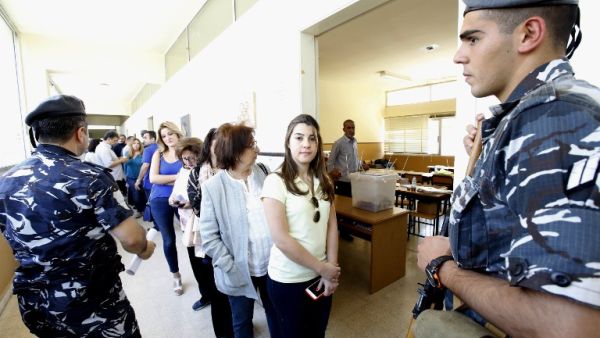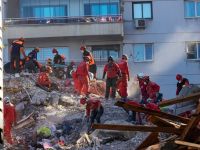The Lebanese Association for Democratic Elections (LADE) said Monday it recorded 647 violations and incidents of harassment during the local elections in Beirut and east Lebanon one day earlier.
In a report, the monitor said 425 of the total violations, or nearly two-thirds of them, took place in Beirut, while 222 occurred in the Bekaa Valley and the Baalbek-Hermel district.
This is a significant increase from 314 violations recorded in the last polls in 2010 in the same areas, the report added.
The nature of the violations included bribes, scuffles, pressure on voters, promoting candidate lists in and around polling stations, the interference of security forces or other officials during voting and vote counts, as well as the lack of equipment at polling stations, the prevention of LADE observers from entering polling stations after voting ended despite having valid Interior Ministry licenses, and preventing people from voting under the pretext their ID cards were invalid.
LADE also reported being subjected to harassment and threats by supporters of the Beirutis’ List, backed by the Future Movement and other mainstream parties, as well as by Hezbollah supporters in the Bekaa, as well as security forces personnel.
The association reported a “significant decline in the performance of the electoral process management and lack of seriousness in the preparation” for the polls, placing blame on the Interior Ministry.
The report also noted chaos at some of the polling stations, and witnessing some ballots being left open and moving them outside of the polling station without security observance.
It said there was “rampant chaos” at the BIEL complex where votes were being counted.
In a press conference after polls closed, Interior Minister Nouhad Machnouk announced that the ministry received 650 complaints altogether, most of which he said were dealt with.
He reported four incidents of gunfire, eight scuffles inside polling stations and 20 other "minor security incidents" throughout the day.
“The Lebanese people have elected their representatives in their local governments, after two extensions for Parliament which came under a security pretext. Now that these excuses have failed, demanding the government to quickly prepare for the parliamentary elections has become the top priority,” LADE said in their Monday report.
Parliament extended its own in 2013 and again in 2014. Legislative elections were as a result called off, as MPs said it would have been hard to hold the polls during the tense security situation in the country at the time.
Voters took to the polling stations Sunday in the Beirut, Bekaa and Baalbek-Hermel governorates to vote for their new municipal councils and mukhtars, or local government officials.
Elections for the rest of the country’s governorates are scheduled to take place on May 15, 22 and 29.








